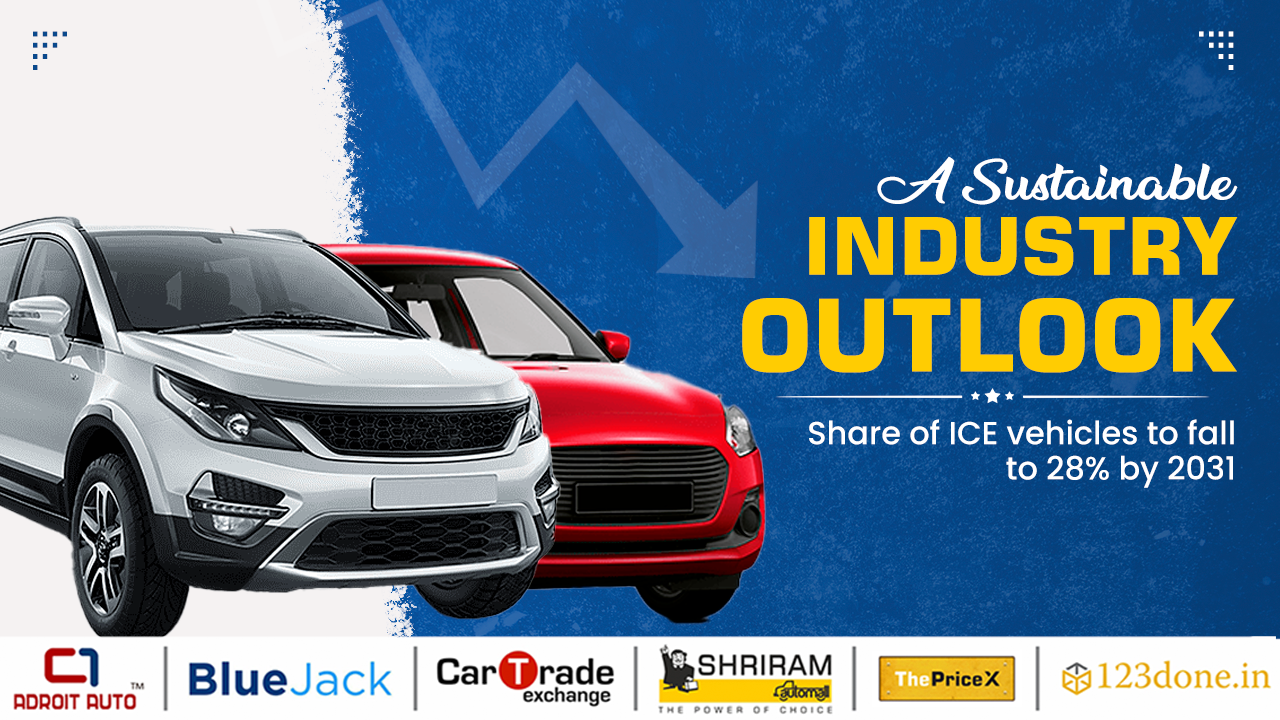A Sustainable Industry Outlook - Share of ICE vehicles to fall to 28% by 2031 and 10% by 2040

In the ever-accelerating race towards carbon neutrality, the automotive industry anticipates a significant transformation in its landscape. Industry experts predict that the share of traditional internal combustion engines (ICE) will decrease substantially in the coming decade, aligning with the global commitment to a net-zero carbon future.
Addressing a symposium on international automotive technology, experts emphasize the need for a holistic, technology-agnostic approach. The industry is urged to focus on continuous improvement in internal combustion engines (ICE), explore alternative fuels such as Compressed Natural Gas (CNG), and delve into hybridization technologies. This strategic shift is essential as the automotive market is poised for substantial growth, with projections indicating a significant increase in unit sales.
India's automotive market is poised for substantial growth, reaching 6 million units by FY31 and further expanding to 10 million units between 2030 and 2040. This growth will necessitate a transformation in the powertrain mix towards cleaner alternatives.
A decline in the share of petrol vehicles is seen from 80% at the end of FY23 to 28% by FY31, ultimately reaching 10% by 2040. Simultaneously, alternate fuels are expected to rise from 19% at the end of FY23 to 32% by FY31, with the share of electric vehicles (EVs) reaching 15% by FY31 and a substantial 40% by 2040. Hybrid vehicles, accounting for less than 1%, are projected to surge to 25% by FY31, settling at 20% by 2040.
Forecasts indicate a decline in the share of conventional fuels like petrol, paving the way for cleaner alternatives. As alternate fuels gain prominence, the industry is expected to witness an increased adoption of electric vehicles (EVs), hybrid electric vehicles (HEVs), and a variety of alternative fuel sources. The coexistence of various technologies becomes crucial for achieving sustainable mobility goals.
Experts envision a future where EVs complement internal combustion engines, alternate fuels, and HEVs. This collaborative approach is seen as a practical solution to meet the diverse needs of consumers while fostering environmental sustainability.
In exploring alternative fuels, experts anticipate the expansion of Compressed Natural Gas (CNG) infrastructure and an increased adoption of ethanol blends. Bio CNG emerges as a promising alternative with negative carbon intensity, contributing to the industry's sustainability goals.
Ensuring a clean environment requires a comprehensive approach, including the development of a low-carbon electricity grid for charging using renewable sources. As the industry accelerates product development and aligns with evolving customer expectations, there is a growing emphasis on generating energy using low-carbon fuels. The industry is encouraged to elevate the share of renewable electricity in total electricity generation to pave the way for a greener tomorrow.
In this industry-wide journey towards sustainability, the quest for sustainable and greener energy sources is paramount. With a collective vision of reducing dependence on conventional fuels, the industry is poised to play a pivotal role in shaping a sustainable and environmentally conscious future.

 Download Our App
Download Our App



